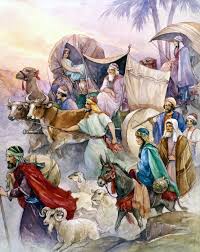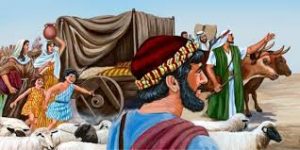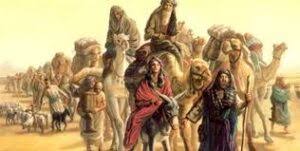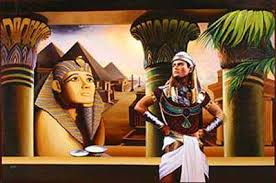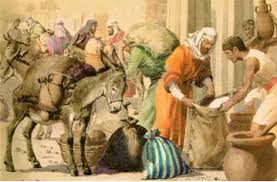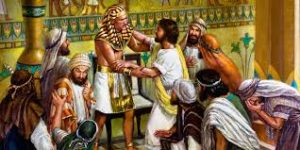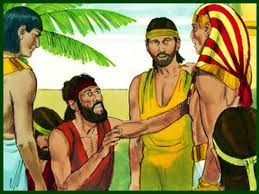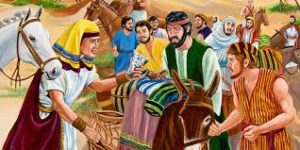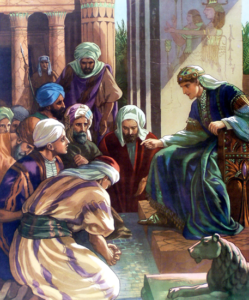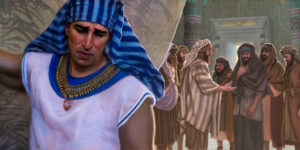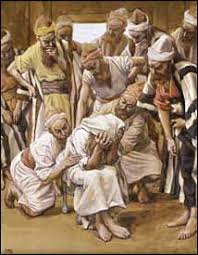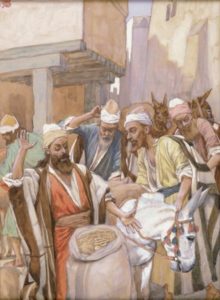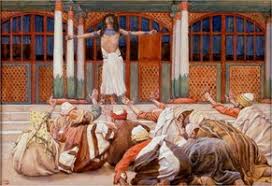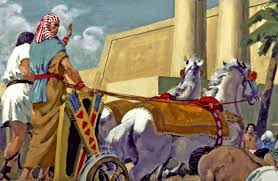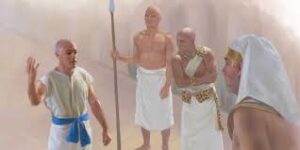Kn – Jacob Arrived in Egypt 46: 28-34
Jacob Arrived in Egypt
46: 28-34
Jacob arrived in Egypt DIG: How has Joseph prepared his family to meet Pharaoh? Did they tell the truth or did they lie? In what way did Joseph foreshadow the life of Christ?
REFLECT: Jacob had one wish, and that was to see Yosef alive before he died. What one wish would you like to see come true before you die? What would you be willing to sacrifice to see it fulfilled?
As the Israelites approached Egypt, they knew they would be stopping in Goshen, according to Yosef’s instructions (45:10). Therefore, Ya’akov sent Judah (now fully recognized as the leader among Jacob’s sons) on ahead to tell Joseph to meet him in Goshen, and to direct them exactly where to go.711
Now Ya’akov sent Judah, once again taking a leadership role, ahead of him to Joseph to get directions to Goshen. The rabbis believe that this passage teaches that there will be two Messiahs. They teach that Joseph would receive the Kingdom before Judah, because Joseph was in Egypt before Judah. They believe that a descendant of Joseph will be the first Messiah, or the suffering Messiah (see the commentary on Isaiah, to see link click Iy – The Death of the Suffering Servant), and the second Messiah, a descendant of Judah, and then David, will be the ruling Messiah (Psalm 72). When they arrived in the region of Goshen, Joseph quickly had his chariot made ready and went to Goshen to meet his father Isra’el (46:28-29a).
77. Both Yeshua and Yosef make themselves ready to meet Judah first, then Isra’el. This is really the epiphany of Joseph. He reveals himself in the splendor of a king to his people. He meets Judah first and then meets his father Isra’el. This is also how it will be with the Messiah. See, ADONAI is coming with fire and His chariots are like a whirlwind (Isaiah 66:15a). Jesus will also appear first to Judah, then to Isra’el. The LORD will save the dwellings of Judah first. On that day a fountain will be opened to the house of David and the inhabitants of Jerusalem, to cleanse them from sin and impurity (Zechariah 12:7 and 13:1).
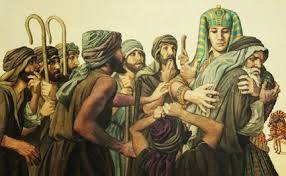
Yosef and his father had been separated for twenty-two years and as soon as Joseph appeared before him, he threw his arms around his father and wept for a long time. There were no words, only tears. Finally Isra’el said to Joseph, “Now I am ready to die, since I have seen for myself that you are still alive” (46:29b-30). In many ways Jacob’s reaction, upon seeing Yosef, parallels that of Simeon in the Temple: ADONAI, dismiss your servant in peace . . . for my eyes have seen salvation (Luke 2:29-30). Ya’akov can now happily accept death, knowing that he will no more go to his grave with unanswered questions about his beloved Joseph’s circumstances. Jacob may feel he is prepared to die, but he will actually live in Egypt another seventeen years.712
It was impossible for Jacob’s household to settle in Egypt, even with Yosef’s approval, without the matter being referred to Pharaoh for his royal consent. Then Joseph said to his brothers and to his father’s household, “I will go up and speak to Pharaoh and will say to him: My brothers and my father’s household, who were living in the land of Canaan, have come to me. The men are shepherds; they tend livestock, and they have brought along their flocks and herds and everything they own” (46:31-32). Knowing that the Egyptians looked down on shepherds, Yosef tried to prepare his family to present themselves honestly but honorably to the Egyptians.
Joseph’s words are an interesting combination of principle and prudence. He encouraged them to stress that they tended cattle rather than herded sheep. When Pharaoh calls you in and asks: What is your occupation? You should tell the truth and answer: Your servants have tended cattle from our boyhood on, just as our fathers did. Then you will be allowed to settle in the region of Goshen, for all shepherds are detestable to the Egyptians (46:33-34). Goshen was most likely located on the eastern side of the Nile delta region. This area was extremely fertile with excellent grazing facilities. The Egyptians despised all shepherds because they despised sheep both as food and for sacrifices. They had monuments that constantly showed shepherds as lanky, withered, distorted, emaciated and sometimes almost ghostly figures. According to Herodotus, the swine herders were the most despised of the seven castes of the Egyptians.713 They would not want them as close neighbors, and would prefer to have them settle in the region of Goshen, a part of Egypt that was particularly suited to grazing livestock.714
The Word of God has much to say about shepherds, and Yeshua said of Himself: I AM the good Shepherd; I know My sheep and My sheep know Me (just as the Father knows Me and I know the Father), and I lay down My life for the sheep (John 10:14). He is the great Shepherd of His sheep who watches over them today (Hebrews 13:20). And my friend, He is detestable to the world. The real Jesus is not well received. The world has changed the Messiah into someone it cannot accept. The One it talks about is not virgin-born, never performed miracles, did not die for the sins of the world and was not raised from the dead.715 Therefore, it is best to remember that anyone who chooses to be a friend of the world becomes an enemy of God (James 4:4).



